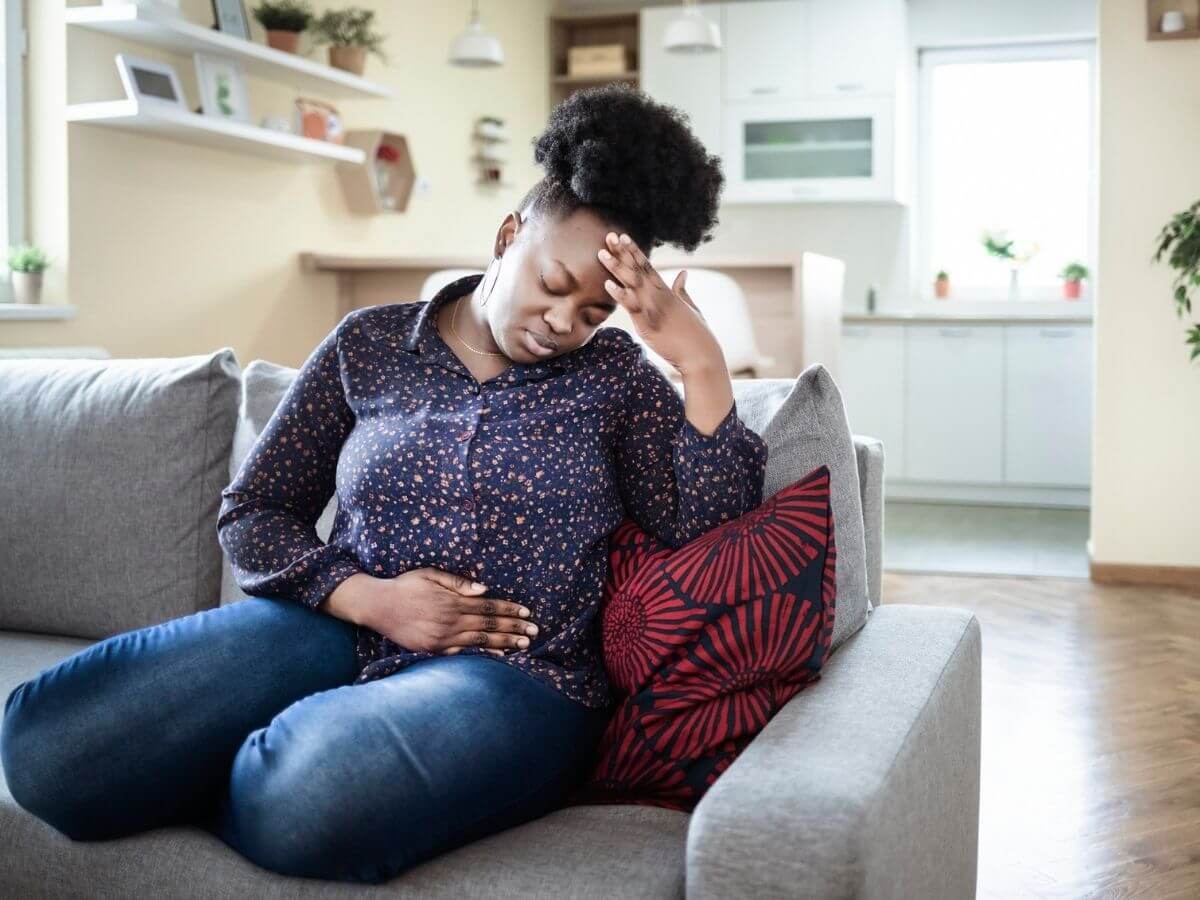What Is an Ectopic Pregnancy?

In a normal pregnancy, a fertilized egg attaches to the lining of the uterus. In an ectopic pregnancy, the fertilized egg attaches and begins to grow somewhere outside the uterus. Nearly all ectopic pregnancies occur in a fallopian tube.
Also called an extrauterine pregnancy, an ectopic pregnancy can cause life-threatening bleeding and requires prompt medical care. Sadly, ectopic pregnancies can’t proceed normally. The fertilized egg can’t be moved to the uterus and must be removed from or reabsorbed by the body.
Ectopic Pregnancy Symptoms
If you develop an ectopic pregnancy, you may not notice any symptoms at first. Instead, you may experience the normal signs of pregnancy like a missed period, nausea, and breast tenderness. A pregnancy test at this point will be positive.
When the symptoms of an ectopic pregnancy develop, they can include:
- Light vaginal bleeding
- Mild pelvic pain
- Sharp abdominal cramps
- Upset stomach and vomiting
- Weakness or dizziness
- Pain in your neck, shoulders, or rectum (called referred pain and caused by nerve irritation)
If an ectopic pregnancy causes a fallopian tube to rupture, you can experience severe pain with or without severe bleeding. This is a life-threatening situation that requires emergency medical care.
Ectopic Pregnancy Risk Factors
Often, it’s not known why an ectopic pregnancy occurred. However, you’re more likely to have an ectopic pregnancy if you:
- Are older than 35
- Smoke cigarettes
- Have scarring from pelvic surgery
- Have pelvic inflammatory disease (PID)
- Had a previous ectopic pregnancy
- Take fertility drugs
- Become pregnant while using an intrauterine device (IUD) for birth control
- Have had certain sexually transmitted infections (STIs)
- Have had endometriosis
Never Miss a Beat
Get the health and wellness news that matters most delivered straight to your inbox. Subscribe to our free email newsletter to stay up-to-date on the latest news and more.
How Is an Ectopic Pregnancy Treated?
A fertilized egg can’t survive outside the uterus, so your doctor must remove it. This is done in one of two ways. If the pregnancy hasn’t advanced significantly and there’s been no damage to the fallopian tube, your doctor can give you an injection of a medication called methotrexate to stop the fertilized egg from developing. Your body then absorbs the cells.
In other cases, you may have to have a surgery called a laparoscopy. In this procedure, your doctor makes a very small cut in your lower belly and inserts a thin, flexible tube that’s used to remove the fertilized egg. If the ectopic pregnancy has damaged your fallopian tube, your doctor may remove it, as well.
If you have heavy bleeding and there’s reason to believe your fallopian tube has ruptured, emergency surgery with a larger incision may be necessary.
When to See a Doctor
If you think you may have an ectopic pregnancy, you should contact your doctor. If you experience heavy vaginal bleeding with lightheadedness, shoulder pain, severe belly pain (especially on one side), or fainting, you should get medical help right away.
Learn About Maternity Care Services at Baptist Health
Experiencing an ectopic pregnancy doesn’t necessarily mean you can’t have a normal pregnancy later.
If you’re pregnant, planning to become pregnant or develop any pregnancy complications, Baptist Health offers world-class Maternity Care services. Learn how we can support you and contact us with questions or concerns.
Next Steps and Useful Resources
Find a Provider
What is Implantation Bleeding and When Does It Occur?
What Is a Chemical Pregnancy?
Early Symptoms of Pregnancy: Weeks 1-8



